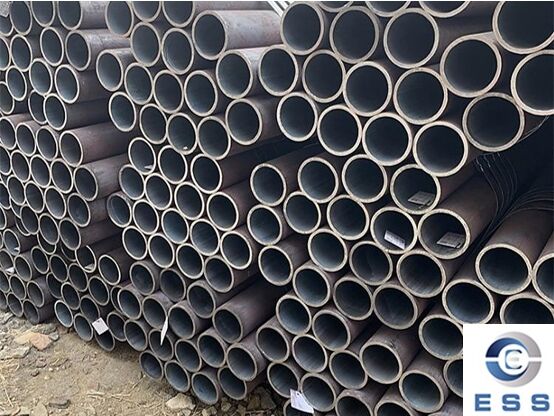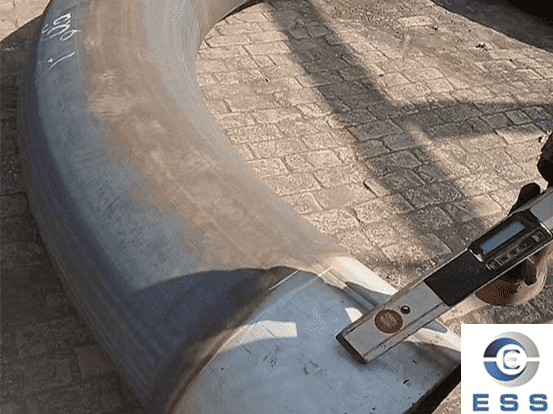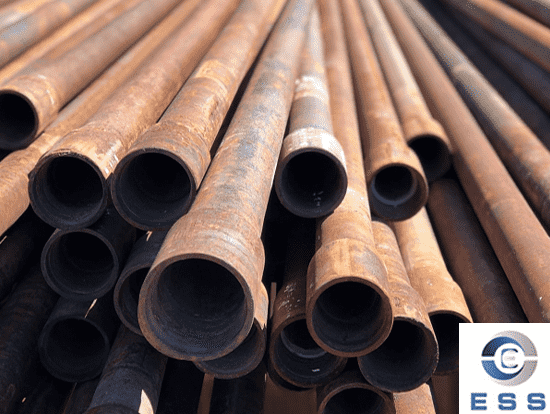
As an indispensable and important component
in modern industry, T91 high-pressure boiler
tube is widely used in various high-pressure boiler systems due to its
stable performance, high pressure resistance and high temperature resistance.
To ensure the safe and efficient operation of T91 high-pressure boiler tube,
this guide will introduce in detail the precautions for its selection,
installation, operation and maintenance.
Selection
During the selection stage, we need to
comprehensively consider factors such as the material, specification and
quality standard of T91 high-pressure boiler tube.
1. Make sure that the selected pipe meets
national standards and industry specifications and has reliable quality
assurance. For seamless
steel pipe in high-pressure boilers, their quality standards are
particularly critical because they need to have excellent sealing and strength
under high-pressure environments.
2. According to actual working conditions,
such as working pressure, temperature range, etc., select appropriate
parameters such as wall thickness, outer diameter and length.
3. The corrosion resistance and fatigue
resistance of the pipe should also be considered to ensure the safe operation
of the pipeline. In some highly corrosive environments, such as the chemical
industry, it is crucial to choose carbon
steel pipe or low-alloy steel pipe with excellent corrosion resistance.
Installation
When installing T91 high-pressure boiler
tubes, we need to follow certain construction specifications and operating
procedures.
1. Clean the pipeline to ensure that there
is no debris or oil stains in the pipe. This helps to reduce problems such as
blockage and corrosion that may occur during the operation of the pipeline. For
the precision
tube and seamless steel tube for boilers, cleaning is particularly
important to ensure the smoothness and cleanliness of their internal surfaces.
2. Connect and fix the pipeline according
to design requirements to ensure the stability and sealing of the pipeline
system. During the installation process, it is also necessary to avoid
excessive stress and deformation of the boiler tube to avoid affecting its
service life and safety performance. For pipes connected by the pipe flange,
ensure the parallelism of the flanges and the cleanliness of the sealing
surface to prevent leakage.
3. To ensure the quality of pipeline
installation, we also need to carry out necessary inspections and tests. For
example, perform radiographic or ultrasonic flaw detection on the welds of
boiler tubes to check the quality of the welds; perform pressure tests on the
pipelines to verify their ability to withstand pressure, etc.
Use
When using T91 high-pressure boiler tubes,
we need to conduct regular inspections and monitoring to ensure the normal use
of the pipeline system.
1. Pay attention to whether the working
pressure and temperature of the boiler tube are within the allowable range to
avoid abnormal conditions such as overpressure and overtemperature.
2. Check the vibration of the boiler tube
to promptly discover and deal with potential safety hazards.
3. It is also necessary to pay attention to
the flow state of the medium to ensure that the medium flows smoothly in the
high-pressure boiler tube to avoid problems such as blockage.
During use, we should also make necessary
adjustments and maintenance to the pipeline according to actual conditions. For
example, adjust the flow rate of the pipeline according to the nature and flow
of the medium to reduce scouring and corrosion of the pipeline; regularly clean
and derust the pipeline to extend its service life, etc.
Maintenance
To ensure the long-term and stable
operation of the T91 high-pressure boiler tube, we need to perform regular
maintenance work.
1. Regularly inspect the high-pressure
boiler tube, including appearance inspection, wall thickness measurement, etc.,
to discover and promptly deal with damage and defects in the pipeline.
2. Perform necessary anti-corrosion
treatment on high-pressure boiler tubes, such as applying anti-corrosion
coatings and installing cathodic protection devices, to improve their corrosion
resistance.
3. It is also necessary to maintain and
replace the accessories of high-pressure boiler tubes, such as valves, flanges,
etc. Selecting a high-quality valve supplier and flange
supplier can effectively reduce the occurrence of leakage and failures and
ensure their normal operation.
During maintenance, we should also follow
relevant safety regulations and operating procedures to ensure the safety of
operators and the stable operation of pipelines. For example, when cleaning and
derusting pipelines, necessary protective measures must be taken to avoid harm
to operators; when repairing and replacing pipelines, operations must be
carried out in accordance with prescribed procedures to ensure the quality and
safety of repairs.
Summary
In summary, the use of T91 high-pressure
boiler tubes involves selection, installation, operation, maintenance and other
aspects. Only by fully understanding its characteristics and requirements and
following relevant specifications and operating procedures can the safe and
efficient operation of pipelines be ensured.
Read more: How To Weld Boiler Tubes?













 Eastern Steel Manufacturing Co.,Ltd not only improve product production and sales services, but also provide additional value-added services. As long as you need, we can complete your specific needs together.
Eastern Steel Manufacturing Co.,Ltd not only improve product production and sales services, but also provide additional value-added services. As long as you need, we can complete your specific needs together.










